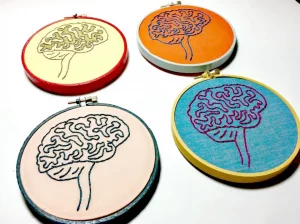
Some people can adjust to new cultures far more easily than others. Understanding why some find cultural adaptability to be relatively painless, whereas others struggle to adapt is a problem of longstanding concern. Many are interested in the results, including businesses with multinational operations, and governments dealing with foreign policy in an increasingly interconnected world.
For the most part, research on cultural adaptability has relied for decades on survey and interview methods as the primary sources of data. Now, in a recently launched interdisciplinary collaborative project, cognitive scientists will begin using brain imaging techniques to address the cultural adaptability issue.
The project is funded by the Office of Naval Research, and led by Jonathon Kopecky of the Johns Hopkins University Applied Physics Lab. Global Cognition researchers Winston Sieck and Louise Rasmussen are among those serving on the team, as is Aysecan Boduroglu of Bogazici University in Istanbul.
The researchers are testing several hypotheses about the relationship between neural activation and cultural adaptability. One hypothesis involves the potential connections between cultural learning, crystallization and plasticity in the brain, and cross-cultural competence.
The general idea is that growing up within a particular culture results in the deep-rooted acquisition of culturally-relevant skills. For example, these could include facial expressions and other aspects of non-verbal communications. As the cultural skills are continuously practiced and refined, they tend to develop localized “circuits” in the brain that are then dedicated to performance of the skill.
In other cultures, differences in the specific ways of executing skills can result in anatomical differences in the localized, dedicated circuits. It may be that some people tend to learn the skills required by their own culture extremely well, and so exhibit the greatest extent of localization. If so, the cognitive functioning in these folks may be overoptimized for certain skills with respect to adjusting the execution to new cultural environments. The dedicated circuitry makes it harder for them to blend in to the new culture.
The research team will compare and contrast the patterns of neural activation for participants who perform poorly and those who perform well on a set of tests to measure cultural adaptability.
In doing so, the researchers aim to establish the extent to which the variability in how people perform in culturally challenging situations corresponds to differences in the brain.
Image Credit: Hey_Paul

